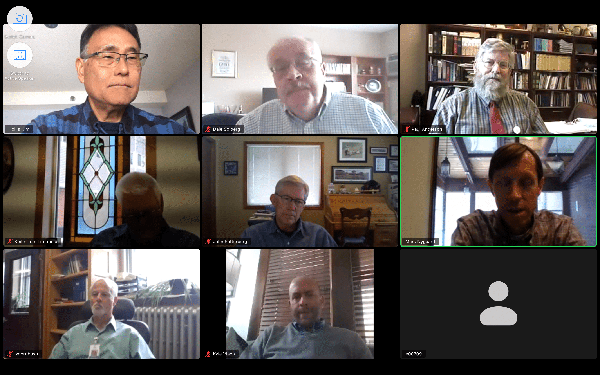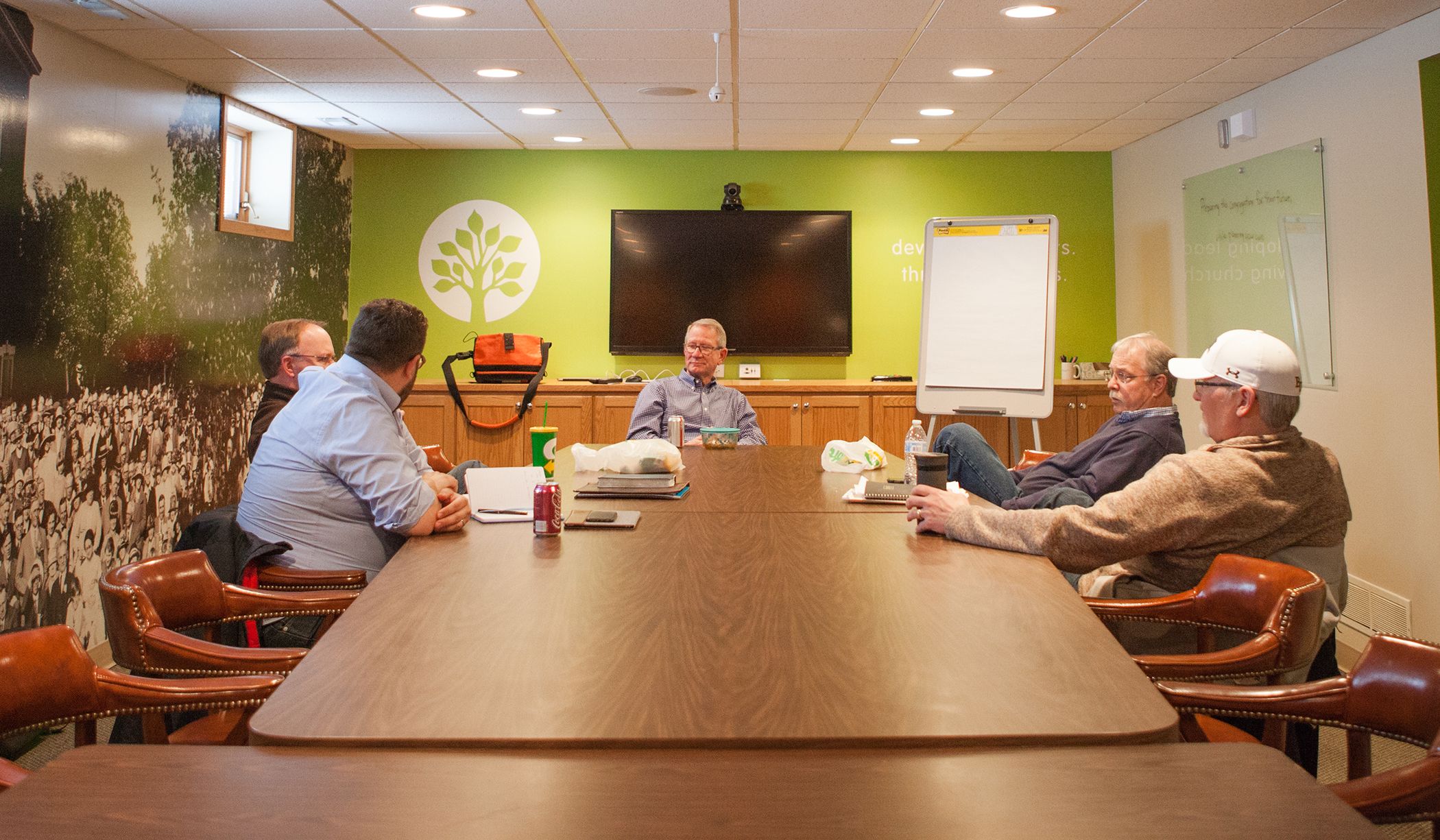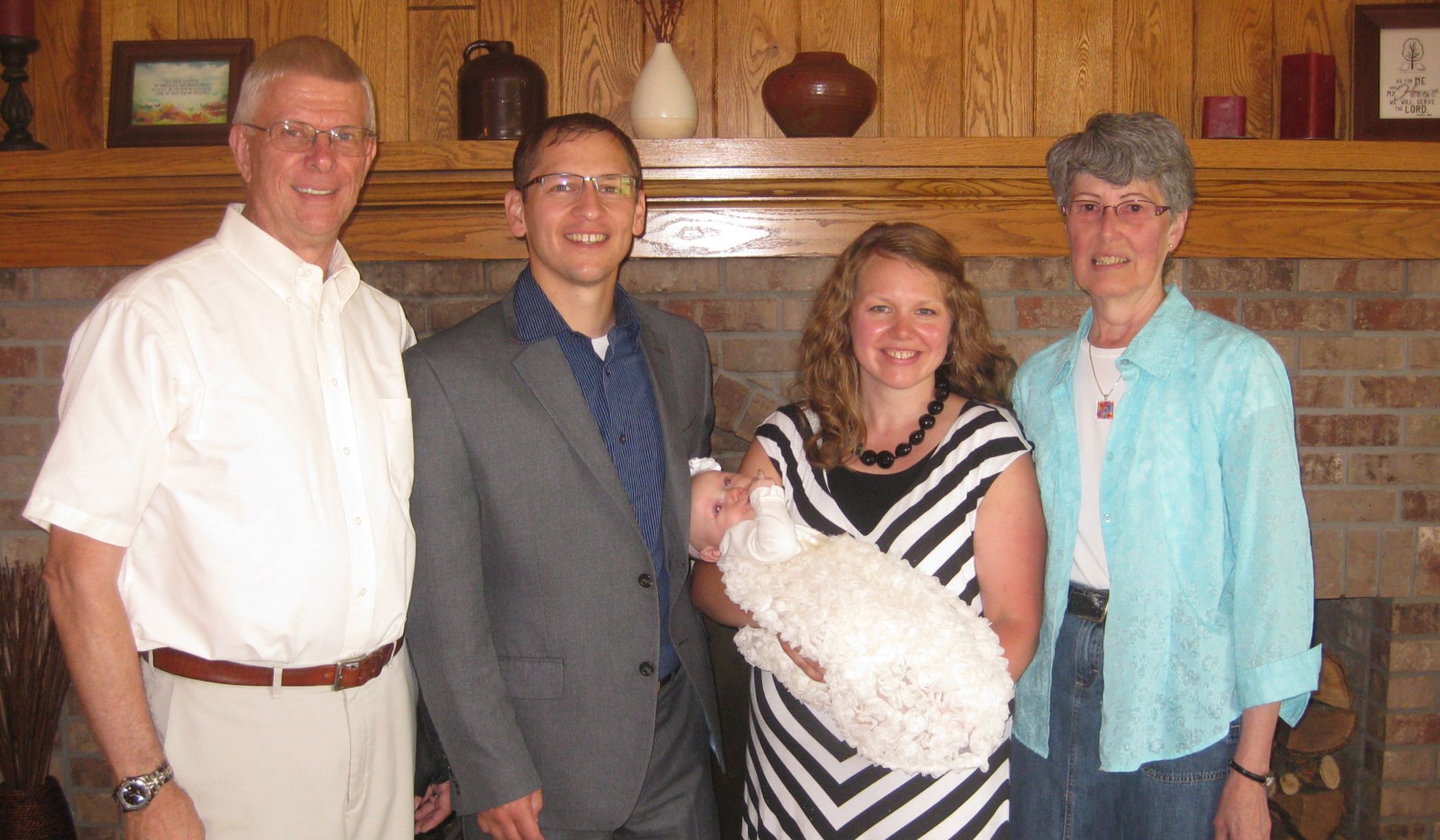Pastor Linda Norlien, retired Chaplain (Lieutenant Colonel) in the U.S. Army, recently shared this reflection on what it takes to minister well in difficult circumstances and consistently over a long period of time.
May it be an encouragement to us all as we look toward 2021.
Ministry during a global pandemic is presenting challenges most of us have never faced before. Our training and prior experience comes up short in equipping us to face the increases in leadership challenges, decisions and fatigue.
Based on my experience as a retired Army chaplain, I would say this ministry context most resembles the challenges Army chaplains face while deployed to a combat zone.

Ministry in a combat zone
Perhaps a brief account of an experience I had in 2006 in the dining facility at Camp Bucca near Umm Qasr, Iraq, will reveal the resemblance I see. I had just finished my meal when I spotted a fellow chaplain and took the opportunity to walk over and see how he was doing. It was breakfast time and my friend looked exhausted.
I sat down and heard his account of visiting his night shift personnel. He was eating breakfast and preparing to head out to check on his day shift. He was noticeably thin and completely ragged out. Since he was the only chaplain of his military branch on the base, he felt the weight not only of making sure all of his personnel knew him, but that he had addressed all of their religious support needs.
He was weeks into his pattern of making rounds across the entire base—visiting both day and night shifts. He was lacking sleep and losing weight, to say nothing of the strain on his emotional and spiritual life.
I was senior to him in date of rank and on my second combat deployment. I also knew his supervisory chaplain was located on another operating base, so I took the chance to offer him some friendly advice. As we talked, I was able to help him see that he desperately needed to develop a battle rhythm that included regular sleep, quality nutrition, quiet time with the Lord, physical exercise, phone or video conferences with his family back home, regular office hours and some body-and-soul-relieving relaxation with people.
His day and night shift visits were commendable—demonstrating that his heart was in the right place—but not the most efficient pace for long term, sustainable ministry in a combat zone. He thought that the place he was needed most was out where his people were, but he could only be in one place at a time. He was wearing himself out visiting with each of his personnel, but at any given time there might be 10 others unable to locate him.
I conveyed my genuine concern that he was on a trajectory that made him inaccessible to most of his personnel most of the time. He was also harming his health and he would not have the needed reserve energy to draw from if there were a serious incident requiring him to be at his peak emotionally, spiritually and physically.
Our visit went well and ended with him thanking me for my concern. He also pledged to give my recommendations genuine consideration.
Lessons we can use
We know from the testimony of others that the stress and strain of leading churches during this global pandemic is pushing pastors toward exhaustion. So, allow me to offer you some of the lessons we learned as military chaplains while deployed to combat zones.
The most important first step, as I told my friend in Iraq that morning, is to develop a weekly written plan for your time. In the military we called it our “battle rhythm,” which we printed and posted on the doors of our office, chapel and dwelling. That posted schedule informed everyone in our unit, from the most junior soldier to the staff and commander, where we were 24/7. We also made sure everyone had our contact information, so we were accessible, as needed.
An important principle we must recognize is that we cannot physically be everywhere we could possibly be used, so we must be accountable to others for where we are so they can locate us. Treat that plan as your rule of life and exercise and refine it week by week. By making your schedule available, you force yourself to be accountable to discipline your time. Developing and refining that plan every week helps you identify areas you might be neglecting like enough sleep, time with family and personal devotion time.
A second key principle is that it is not enough to simply be present physically if you are so spiritually and emotionally and physically depleted that you are not worth anything when you get there. The most important thing you bring into any conversation, meeting, study, worship service or counselling appointment is your well-rested, emotionally-healthy, Holy Spirit-filled presence.
I am not saying that God will not equip you beyond your own normal capabilities when the situation requires more than you have at that time. However, we are foolish to consistently live beyond our physical and emotional and spiritual capacities, and then expect God to use us when a need presents itself.
To minister well, consistently over a long-term time of unusual stress and strain, we must increase our planning and collaboration time and prioritize better than ever. Look for and ask God where He is working and resist distractions. Choose wisely so you can join God deeply.
In order to build your perseverance watch for and cultivate sources of joy. Have a sleep plan and keep working and refining it. Eat healthy food and drink more water. Nurture healthy friendships of all sorts. Ask God to help you resolve any personal conflicts you have and nurture family relationships, spiritual companions, and hobby and exercise friendships.
Stay connected with those you love intimately. Resist the temptation to take your closest relationships for granted. That will undermine the long-term health of those relationships. Instead, address loneliness before it sets in by connecting deeply.
Be careful to resist the tendency to ignore, deny or dismiss your needs of any kind. Remind yourself that any need you deal with in an unhealthy manner opens up a vulnerability to temptation. Give yourself permission to be affected by the challenges of the situation and address your needs in the moment.
Enjoy healthy sources of humor, sip your coffee slowly, listen to jazz, play your instrument, do art and read a fun novel or biography. Nurture gratitude and actively refuse fear and panic. If you know your Myers-Briggs Personality Type or your Enneagram number, use that insight to be the healthiest version of yourself, addressing the shadow sides of your personality.
Seek God’s presence and involvement in all you are responsible for by cultivating breath prayers, so you can be in an attitude of prayer continually. Recognize and acknowledge beauty and goodness wherever it can be seen. Grieve with faith by putting your confidence in God.
Times like these help us to recognize that what people need most comes from God, not us. But, we do have the privilege of reminding them of that. Nurture collaboration with other ministers and ministries, refusing competition that might have existed before.
In fact, identify what you admire and respect of other leaders and humbly learn from them. Refuse superficiality and legalism, genuinely making more time for the Lord to speak to you. If you have never engaged in the classic disciplines of the Christian faith like silence and solitude, and devotional Bible study, do so now.
Studying for sermon preparation is not the same as employing your contemplative imagination as you reread the stories of Jesus in the Gospels, seeing yourself as the person Jesus is forgiving and healing.
Empower other paid or lay-leaders to lead by coordinating a plan to share, or even hand off, responsibilities appropriate to their gifts and maturity. By prioritizing being accessible you entrust others to contact you when you are most needed and sustain your physical, emotional and spiritual resources, so when you get there you actually minister meaningfully.
Make and keep your appointments with your spiritual director, your counselor, your medical doctor, dentist and physical therapist. In fact, address your medical needs especially if they include pain or interrupted sleep. Remember, God meets us and blesses us where we are, not where we wish we were.
No time is too late to turn your situation over to God and listen afresh for his quiet whisper. Your schedule will still be full, but the planning, preparation and prioritizing I am recommending will equip you to minister well. You will be awake enough to be present and aware enough to be meaningfully working alongside God in what He is busy doing in each life and each ministry opportunity you encounter.
Ten Years Later
Ten years after our time at Camp Bucca, I bumped into my chaplain friend who was now an instructor in the basic course for chaplains just entering service. We had a joyful reunion and he introduced me to his students, by saying this is the Army chaplain I told you about who very likely saved my life.
It turns out that he took my counsel that day in Iraq and used it in every applicable situation thereafter. Now, he was passing the same healthy battle rhythms to these young chaplains who were headed to their own exciting but challenging ministries.
Pastor Linda Norlien
Chaplain (Lieutenant Colonel) US Army, Retired
 Hollis Kim, NWC Director of Pastoral Care & Development, recently participated in a Zoom gathering of chaplains serving in the Conference and provided the following update:
Hollis Kim, NWC Director of Pastoral Care & Development, recently participated in a Zoom gathering of chaplains serving in the Conference and provided the following update:
In my role as Director of Pastoral Care & Development, I have the rare privilege of being with our NWC Chaplains who provide pastoral and spiritual care in hospitals, retirement and other congregate residential facilities, in the military, and prisons and other contexts.
These faithful, courageous and compassionate ministers of the Gospel bring the loving presence of Jesus into the lives of patients, staff and their families during these extraordinarily trying times.
On a recent Zoom call with NWC Chaplains, I heard stories of how chaplains bring Christ’s heart of compassion to patients, staff and their families who lose loved ones—both to COVID and to other tragedies. Hearing these accounts reminds me that our chaplains—like nurses, doctors and other health care workers—continue to be on the front lines of care. They bring the fragrance of Christ and his compassion to folks who are suffering and struggling, often alone.
Our chaplains bring the presence of Jesus into places on the margins of our society, courageously and faithfully putting themselves in harm’s way to do so. One of our chaplains was deployed on a team to bring aid to victims of Hurricane Delta and is just finishing a quarantine “out of an abundance of caution” to protect others. While he wasn’t COVID-positive, two of that team were.
Would you join me in thanking our good God for our faithful NWC Chaplains, asking him to “direct [their] hearts into God’s love and Christ’s perseverance” (2 Thessalonians 3:5)?
Anxiety is running high right now: among our people and among ourselves. This two-part webinar with psychologist and author Dr. Linda Solie, gives pastors practical strategies on dealing with anxiety, stress and isolation.
Part 1 of the webinar focuses exclusively on coping skills for managing anxiety. In part 2, Dr. Solie presents additional methods for combating anxiety, as well as ideas for coping with isolation.
Dr. Solie is the author of, “Take Charge of Your Emotions: Seven Steps to Overcoming Depression, Anxiety, and Anger.” She is a member of Bethlehem Covenant Church and serves on the executive board of the Northwest Conference.
 A very extensive Lily Endowment project, called “Clergy, Ministry Life and Wellbeing,” has been going on since 2011. The lead researchers are Matt Bloom of the University of Notre Dame and Chris Adams of Azusa Pacific University.
A very extensive Lily Endowment project, called “Clergy, Ministry Life and Wellbeing,” has been going on since 2011. The lead researchers are Matt Bloom of the University of Notre Dame and Chris Adams of Azusa Pacific University.
The project has included 400 extensive face-to-face interviews and now over 12,000 on line participants across a broad range of denominations. There are a lot of findings that are coming out of this project but one sentence captured my attention and the attention of our newly formed Ministerial Care and Development Committee:
“Clergy is the only helping profession we have studied in which wellbeing declines over one’s career in ministry.”
That is something we certainly want to address. For denominations that have over 400 participants in the study, particular results for your group are provided. The ECC reached that threshold of participation earlier this year and the preliminary findings are being assessed for our denomination.
Of the four main criteria evaluated in the project, Covenant pastors had the lowest scores in resilience:
- The capacity to adapt, adjust and change
- Our ability to respond effectively to life’s challenges and crisis and not to be diminished or damaged by such experiences
Stress is not unique to pastors, but the common ways to address stress provide some unique challenges for pastors.
For example, an important recovery experience to make you more resilient to stress is complete mental detachment from your work. Ideally, that should occur every day for a brief period of time.
For a local church pastor the experience of complete detachment is often more like a small business owner trying to detach from their work. It can be done, but it is not a natural or comfortable posture because the work is intertwined with all of the rest of your life.
While the daily detachment for a short period of time is very difficult, the weekly detachment of a protected day off, the annual detachment of vacation and the periodic detachment of a longer ministerial renewal leave or sabbatical become integral to flourishing in ministry.
 The newest ministerial affinity group in the Northwest Conference is the Interim Pastor’s Connection. The Covenant, along with many other denominations, is experiencing unprecedented numbers of pastoral transitions. In the NWC we are seeing more than double the number of pastoral transitions than have been typical in years past.
The newest ministerial affinity group in the Northwest Conference is the Interim Pastor’s Connection. The Covenant, along with many other denominations, is experiencing unprecedented numbers of pastoral transitions. In the NWC we are seeing more than double the number of pastoral transitions than have been typical in years past.
When such transitions occur, the Conference staff becomes involved in walking with both churches and pastors. Such times are filled with a mixture of emotions—grieving what is being lost and also anticipating what is to come.
Such liminal moments are unsettling and at times vulnerable. In most cases, before we ever begin to help guide the process of finding the next pastor, we are called on to help fill an immediate need for what we have traditionally called an “interim pastor.”
Such pastors can be full-time or part-time, and their roles can be quite different based on the unique church setting and place. We currently have 10 pastors actively serving in interim roles in our Conference. They are a very diverse group of pastors, each with unique skills and stories.
It might surprise you to know that only three of those 10 are pastors who are serving in retirement. Some are serving as interim pastor but have other jobs as well. Others are serving churches in transition while they themselves are in transition from one assignment to the next. Some are very experienced at the role of interim, having served in many churches in that role, and others are serving in that role for the first time—and even serving for the first time as a lead or solo pastor.
Because of the large number and diversity of experiences in the role, we have started an Interim Pastor’s Connection. We meet monthly at the Conference office for the purpose of providing support, encouragement and connection.
At the most recent Midwinter Conference, the Covenant piloted a training program for “Transitional Pastors,” the newer term being used to describe the role. This training identifies three broad categories that transitional pastors operate in:
- Those called to maintain
- Those called to maintain and do some remodeling of systems and ministries
- Those called to maintain, remodel and to guide in critical moment discussions about the future
We are blessed to have such a deep pool of possible servants for these key roles.
 Mentoring is one of the many ways our pastors are being strengthened in their roles. It is most often not a formal process—but it can be a life-changing process for leaders at all stages of life. Here is a recent testimony from one of our young leaders, Pastor Nathan Hillman from Thomastown Covenant Church in Staples, MN.
Mentoring is one of the many ways our pastors are being strengthened in their roles. It is most often not a formal process—but it can be a life-changing process for leaders at all stages of life. Here is a recent testimony from one of our young leaders, Pastor Nathan Hillman from Thomastown Covenant Church in Staples, MN.
“I’ve never been a DIY person. Whether it was learning to change the oil in my car or learning to communicate with people in healthy ways, I’ve always needed a lot of help. I guess that’s why, eight years ago, I was so thrilled that I got to start hanging out on a monthly basis with retired Covenant pastor, Merrill Kindall. Merrill has encouraged me, listened to me, prayed for me, and told me countless relevant stories from his own life and ministry. I thank God for him. Ministry today is too complex and dangerous for DIY.”
A simple approach for pastors looking for a mentor can be asking a more experienced pastor for the privilege of meeting periodically just to ask the two or three most current questions on your mind related to life and ministry.
The recent report, “The State of Pastors,” from Barna Research and Pepperdine University, states that there are more pastors over 65 years old still serving than all pastors under 40. This reveals at least two important things. There is a good supply of mentors out there, and there is a massive transition of leadership just ahead that suggests an urgent need for mentoring.